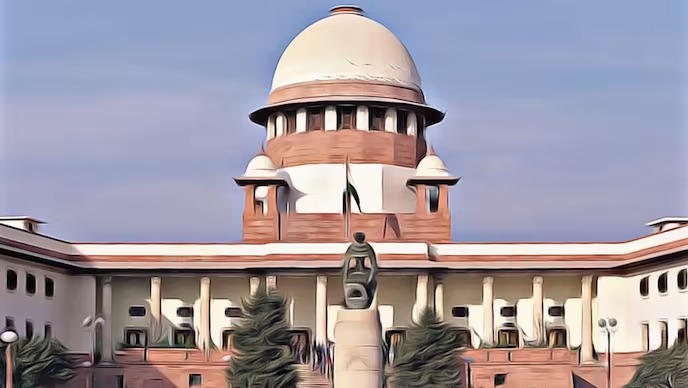Rajiv Sahai Endlaw, J.@mdashThis appeal impugns the judgment and decree dated 14.07.2004 of the Court of Sh. O.P. Gupta, Additional District Judge, Delhi dismissing the Suit No. 130/2002 filed by the appellant. Notice of the appeal was issued and vide ex parte ad interim order dated 04.10.2004, status quo with regard to possession as on that date was directed to be maintained by the parties till the next date of hearing. The said order was made absolute vide subsequent order dated 07.02.2005 when upon completion of the service of the respondent, the appeal was admitted for hearing. The respondent no. 2 Mr. Samson Fradric died during the pendency of the appeal and his legal heirs were substituted vide order dated 09.04.2008. The respondent no. 3 Ms. Manju Mehra also died during the pendency of the appeal and her legal heirs were also substituted vide order dated 26th April, 2013. The Trial Court records have been received and perused. Learned counsel for the appellant only appears. None appears for either of the respondents. However, need is not felt to await the respondents since on hearing the counsel for the appellant, no merit is found in the appeal. The appellant instituted the suit from which the appeal arises, for the relief of possession of property No. 1752, Kucha Dakhni Rai, Darya Ganj, New Delhi and for mesne profits, pleading, (i) that the subject property was given on lease to Mr. F.A. Masih, father of the defendant/respondent no. 2 Mr. Samson Fradric on a monthly rent of Rs. 75/-; (ii) that the respondent no. 2 continued to live illegally in the property even after the death of his father, without paying any rent therefor and rather parted with possession of part of the property to the defendant/respondent no. 1 Mr. Javed Malik; that the defendant/respondent no. 3 Ms. Manju Mehra also illegally occupied a part of the property; (iii) that the defendant/respondent no. 2 Mr. Samson Fradric having parted with possession of major portion of the property and which he was not entitled to do, was not left with any rights in the property; (iv) that the defendants/respondents no. 1 and 3 are trespassers and in any case have no right in the property. The appellant/plaintiff thus claimed possession of the entire property from the three defendants/respondents.
2. The defendants/respondents denied any relationship of landlord and tenant with the appellant/plaintiff and rather set up title in the property unto themselves. In the said state of pleadings, the following issues were framed in the suit:
1. Whether the plaintiff has no locus-standi to file the present suit? OPD
2. Whether the suit has not been property valued for the purposes of court fees and jurisdiction? If so, its effect? OPD
3. Whether the suit has been signed, verified and filed by a proper person? OPP
4. Whether defendant no. 1 has become owner of the suit property by way of adverse possession? OPD1
5. Whether the defendant no. 2 has become owner of the suit property by virtue of adverse possession? OPD
6. Whether the defendant no. 3 is residing in the suit property for more than 50 years as stated in preliminary objection no. 1 of his written statement? If so, its effect? OPD3
7. Whether the plaintiff is entitled for the possession of the suit property? OPP
8. Whether the plaintiff is entitled for mesne-profits? If so, then at what rate and to what extent? OPP
9. Relief.
3. Though the suit Court on the basis of the evidence led decided issues no. 1, 3 to 6 in favour of the plaintiff and against the defendants and which findings are not challenged, but the suit Court on issue no. 7 held that the case of the plaintiff being of the father of the defendant/respondent no. 2 being a tenant in the property and it being not the case of the plaintiff/appellant that the tenancy of the father of the defendant/respondent no. 2 had been terminated in his lifetime, the defendant/respondent no. 2 on the demise of his father had inherited the tenancy rights and the rent of the property being less than Rs. 3,500/- per month, the jurisdiction of the Civil Court to order eviction of tenant therefrom was barred. The appellant/plaintiff was thus held not entitled to the relief of possession. Under issue no. 2, it was held that the plaintiff had not paid the appropriate court fees on the arrears of mesne profits claimed in the suit and under issue no. 8, it was held that the plaintiff having been found to be not entitled to possession, was not entitled to the relief of future mesne profits also. Accordingly, the suit was dismissed.
4. The counsel for the appellant has relied on
5. The counsel for the appellant at this stage states that it is also not the plea of the plaintiff/appellant in the plaint that the tenancy of the father of the defendant no. 2 was not terminated in his lifetime. He however fairly admits that neither is there plea of termination nor any notice of termination has been proved on the record. In these circumstances, all that can be observed is that if the plaintiff finds that the tenancy was in fact terminated and if the plaintiff on the basis of the said termination is entitled in law to file a fresh suit, it would be entitled to do so.
6. The counsel for the plaintiff has argued that though the plaintiff/appellant went to the Court with a case of the father of the defendant/respondent no. 2 being a tenant and without pleading that the tenancy of the father of the defendant/respondent no. 2 had been determined but in view of the defence of the defendants of denial of tenancy and setting up of a title to the property by way of adverse possession unto themselves and in which they have failed, the plaintiff cannot be disentitled from the relief for the reason of the bar of Section 50 of the Delhi Rent Control Act, 1958.
7. I am unable to accept the aforesaid contention. The plaintiff/appellant has to succeed or fail on the basis of the case with which the appellant has approached the Court and cannot succeed on the basis of the defence set up by the defendants and which defence in any case has been disbelieved by the Court and the plea of the plaintiff of tenancy had been upheld. As far back as in
8. Once the factual scenario is that father of the defendant/respondent no. 2 was a tenant and the defendant/respondent no. 2 has inherited the tenancy rights, the jurisdiction of the Civil Court to order eviction from the property would be barred by Section 50 of Rent Act and no error is thus found in the judgment of the Trial Court. The Rent Act, vide Section 14(1) thereof prohibits any order or decree for recovery of possession to be made by an Court in favour of the landlord and against the tenant; the proviso thereto, enables the Rent Controller appointed under the said Act to make such an order on the grounds mentioned therein and one of such grounds mentioned in Clause (b) is, where the tenant has sublet, assigned or otherwise parted with possession of the whole or any part of the tenancy premises without obtaining the consent in writing of the landlord. Section 50 of the said Act bars the Civil Court from entertaining any suit or proceeding insofar as it relates to eviction of any tenant or which the Rent Controller is empowered to decide. On the averments of the appellant in the plaint, of the father of respondent no. 2 being a tenant under the appellant in the property at the rate of a rent of Rs. 75/- per month and of the respondent no. 2 having parted with possession of the premises to the respondents no. 1& 3 and in the absence of any averment in the plaint of the respondent no. 2 having not inherited the tenancy rights in the property for the reason of tenancy of father of respondent no. 2 having been determined in his lifetime, the exclusive jurisdiction to order eviction of respondent no. 2 tenant and the respondents no. 1 and 3 from the property was/is of the Rent Controller and the jurisdiction of the Civil Court before which the suit from which this appeal arises was filed, is barred. The said position would not change by the pleading in the plaint of the respondent no. 2 being left with no rights for the reason of having parted with possession of substantial part of property which was in his tenancy. It is in fact to deal with such a situation only i.e. where the tenant has parted with possession of whole or part of the tenancy premises that Section 14(1)(b) of the Rent Act authorises the Rent Controller to pass an order of eviction.
9. Though the counsel for the appellant has not referred but I have in
10. Once the appellant approached the Civil Court with a case of the respondent No. 2 being a tenant in the property and the property for the reason of the rent thereof being Rs. 75/- per month was covered by the provisions of the Rent Act, the Civil Court u/s 50 of the Rent Act could not have entertained the suit for recovery of possession of the property from the respondent No. 2 tenant and the respondents No. 1 & 3 unauthorizedly inducted by him. Further, the bar u/s 50 being to ''entertain'' any such suit or proceeding, no notice even of the suit could have been issued and thus the defence to the suit is irrelevant and the said defense cannot vest jurisdiction in the Civil Court which it, on the averments in the plaint, lacked on the date of institution. No other point has been urged by the counsel for the appellant. No merit is found in the appeal and the same is dismissed. However the defendants having not appeared, no order as to costs.
Decree sheet be drawn up.

